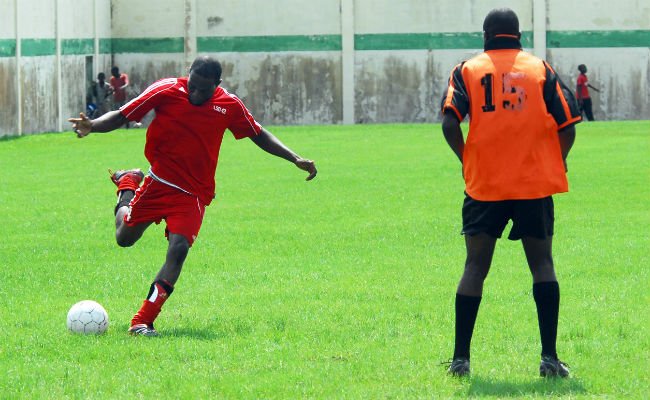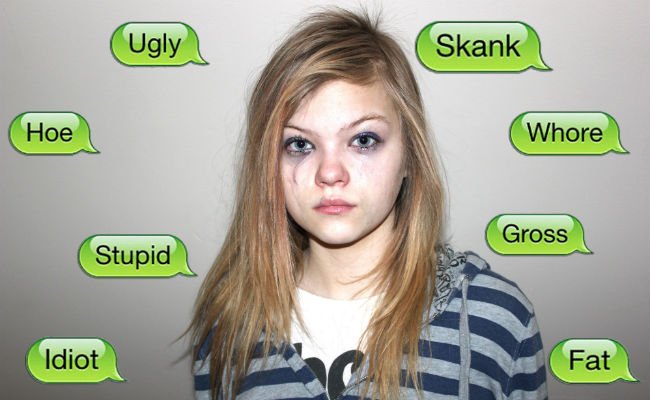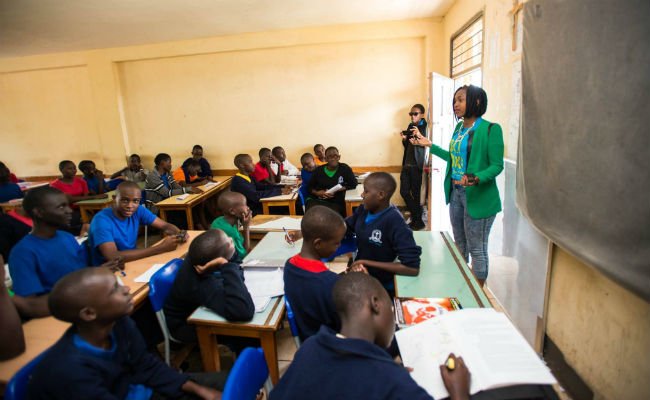Sex ed can be…. awkward. You’re discussing uncomfortable topics, looking at scary, anatomical photos, all while at your peek hormonal/ awkward high school age. It’s a recipe for immature and inappropriate jokes. For tuning out your teacher. For disaster.
I attended a public high school in New York, and so sex ed was part of my mandatory curriculum, and yet I could not tell you one thing I learned during the class. The student body largely treated it as a joke, as a class we were forced to sit through, but certainly didn’t have to pay attention to. And this was considered fairly “progressive.” In many countries sex ed class simply does not exist, and openly discussing sex is culturally taboo. This reality is expanding.
A March op-ed in The New York Times argued that: “The more the world has become interconnected, the more sex ed has come under attack.” Some religious immigrant groups are socially conservative, and join forces with native-born conservative groups to block sexual education campaigns where they resettle. It has happened in Canada, the US, the UK, the Netherlands, and New Zealand (just to name a few).
The attack on sex education and the efforts to halt progressive teaching methods should startle the world. When young people do not have access to a formal sexual education it leads to tremendous misinformation and health risks. Lack of proper knowledge about contraception leads to higher rates of teen pregnancy and the spread of STDs. Many sexual education programs teach the paramount importance of mutual consent and the realities of sexual abuse, giving youth the tools and power to protect themselves and become empowered. Increasingly, sex ed curriculums discuss bisexual, transgender, and homosexual relationships, helping to remove stigma and foster a community of support. Just look to these tweets from the #SupportSexEd hashtag to see why kids need comprehensive sex ed.
I #supportsexed because trial-and-error is no way to learn about one of the most intimate aspects of our lives.
— Kate McCombs, MPH (@katecom) May 4, 2015It’s encouraging to know, however, that despite mounting resistance, many countries and organizations have found ways to bring sex ed to young people, and to actually make it engaging and interesting. No more awkward or boring lists of STD symptoms on the blackboard. No more looking through outdated slide shows on a blurry projector in a dark room. Those days are almost over. And innovators are taking over.
Check out these new sex ed curriculums that are helping youth stay informed and empowered!
Reaching major GOOOOAAAAAALs: HIV/AIDS prevention with Grassroots Soccer

The motto of Grassroots Soccer pretty much says it all: “Educate. Mobilize. Inspire. Stop the spread of HIV.” The organizations uses the universal language of soccer, to teach youth about HIV/AIDS. Founded by four pro soccer players in 2002, Grassroots Soccer uses a curriculum they call “Skillz” to teach 12 - 18-year-olds the basic life skills and knowledge they need to maintain a healthy lifestyle.
For example, one game off the curriculum is called “Risk Field.” The players dribble soccer balls between cones that represent HIV-related risks (such as multiple sexual partners, drug and alcohol abuse, improper contraception, etc). If a player hits a cone their team has to do a set of pushups, demonstrating how just one person’s risk can affect an entire community. By creating this simple but powerful link between the game of soccer (which, last time I checked is very fun and very popular) and important information, Grassroots Soccer makes sex-ed engaging, fun, and less embarrassing. Plus, the lessons often come from a player’s peers or local soccer coaches. In other words, people they are comfortable with and trust. Grassroots Soccer has already reached 1.2 million players in 42 countries, and it shows no sign of slowing down.
“Just say no:” teaching consent in the UK
When Britain announced it would be teaching sex ed to kids as young as 11-years-old, there was definitely some push back, but the curriculum was meant to address the all-too-real and scary reality of sexual abuse and rape in the country. In a 12 month period between 2014 and 2015, Britain and Wales reported over 7,000 cases of assault against children 13 and younger, and over 4,000 cases of rape for children under 16. And just think about how many cases likely went unreported.
The thinking is that the more prepared and informed children are, the less vulnerable they are to assault, and the more likely they are to know when something wrong happens. Without getting overly explicit, the program has a creative and powerful approach to teaching kids the meaning of consent. For example, in one exercise the children are put in pairs, and one walks towards the other until they feel uncomfortable, and they need to express that their personal space has been invaded. The teacher also debriefs how it is the responsibility of the person doing the approaching to obtain consent. Already the message has started to sink in: "If a stranger walks up to you and does something you don't like, I think you should have the confidence to tell him or her 'No'," said one 12-year old who had gone through the lessons.
Don’t be a cyberbully: up-to-date sex ed in Ontario

What good is a sex ed class if it’s stuck in the 20th century?! Ontario’s sex ed curriculum hadn’t been updated since 1988, so when the province implemented an overhaul in September, it made sure to reflect the realities of 2015. That means a major emphasis on sexting, posting sexual content online, and cyberbullying. Starting in Grade 4 students will learn the risks of technology, and how their phones and computers can be used safely. Plus, the concept of “gender identities” will be introduced as early as Grade 3. Although the curriculum has received a lot of pushback from parents and concerned family members, as one teacher said, “Sex education has to be more than just a curriculum document, a single class or unit, and actually become part of the conversation in schools with young people.”
There’s an app for that: sex ed with Hookup
In response to the lack of effective sex ed on college campuses, students at the University of Tennesse, Knoxville created an app called Hookup. The concept is simple. Students who download the app are able to anonymously ask sex-related questions, and an actual sex expert or Planned Parenthood educator will respond. The reality is that a lot of students, too embarrassed to broach the topic with trusted family members or doctors, often turn to Google for their sex questions, which can lead to a lot of inaccurate and confusing information. Hookup cuts straight to the chase, and you’re guaranteed a direct response to your question. Plus Hookup keeps things conversational and fun, using language and a tone students can relate to. The app also provides a forum for students to post anonymous stories about their sexual experiences, creating a community and prevailing attitude of “we’re all in this together.”
Peer-to-peer empowerment: Reach A Hand in Uganda

In September, Global Citizen interviewed the founder of Reach A Hand Uganda, Humphrey Nabimanya, who shared the dangerous misconceptions about sex that he encountered when talking to young people in his country: if having sex standing up always results in pregnancy, if taking a bath after sex can get rid of STDs, if you can avoid pregnancy by jumping around after sex. Reach A Hand aims to empower young people with accurate information about sexual and reproductive health so that they can make informed decisions. The organization uses a “youth-to-youth” approach, because young people are most likely to listen to and open up to other young people, and also attracts young celebrities to advocate for their cause. Basically, the organization makes sex ed “cool,” and trains peer educators to be role models others can look up to.
I got it from my mama: sex ed in China
One mom’s sex-talk with her son became part of the sex ed curriculum for a school in China. Can’t say I would have been too thrilled if this were my mom, but nurse Zhou Li took such a direct approach to teaching her 11-year-old son about sex, that his school invited her to share the message. In China, many families consider it taboo to openly discuss sex with their children. Some parents even tell their children that they came from a rock, like the Monkey King, an old Chinese legend. Zhou Li wanted her son to know the facts and that sex was not something to be ashamed of, so she created an informational PowerPoint presentation. Now Zhou Li has given her presentation to over 300 5th and 6th graders.
Getting back to square one: sex ed in Kenya, Tanzania and South Africa
A lot of NGOs and educators implement sex ed curriculums with the best intentions, but often fail to ask a fundamental question: what do the children we’re teaching already know? Well, new research directed by the University of Cambridge had some very interesting findings. Researchers gave children in Grade 6 (median age 12) cameras in order to record where they learn about sex, love, AIDS, and relationships and who they learn this information from. The reality was that children already knew lots about sex, and were highly aware of the sexualized world around them. There was pornographic graffiti inside buildings, prostitutes they saw on the street, content on traditional media outlets, as evidenced in the video above.
The research found that kids wanted to be given factual information to help illuminate the at-times confusing and conflicting messages they received from the outside world, and that avoiding the more complex information involved in sex ed was actually doing children a disservice. The research has led to a new and innovative curriculum, one which will be adopted by other countries in the region.
The controversy surrounding sexual education is unlikely to go away, but countries can and should ensure young people are informed and aware. It’s essential to global health. Sexual abuse, the spread of STDs, and adolescent pregnancy are major concerns that comprehensive sexual education has been proven to effectively address and reduce. 35 million people in the world are currently living with AIDS, and around 16 million adolescent girls give birth each year. These are startling numbers, and issues that are directly related to world poverty and gender equality. A young woman who has multiple children is less likely to gain an education and financial independence. And a young adult who contracts HIV/AIDS will likely see their lifetime opportunities fall. The complications go on and on.
If the world is to end extreme poverty by 2030, it will need to use every available tool in its toolkit. Replicating some of the innovative and effective sexual education approaches above is no doubt a valuable strategy.
And global citizens can help! Go to TAKE ACTION NOW and tell world leaders to prioritize the rights of girls and women!
The views expressed here are not necessarily those of each of the partners of Global Citizen.